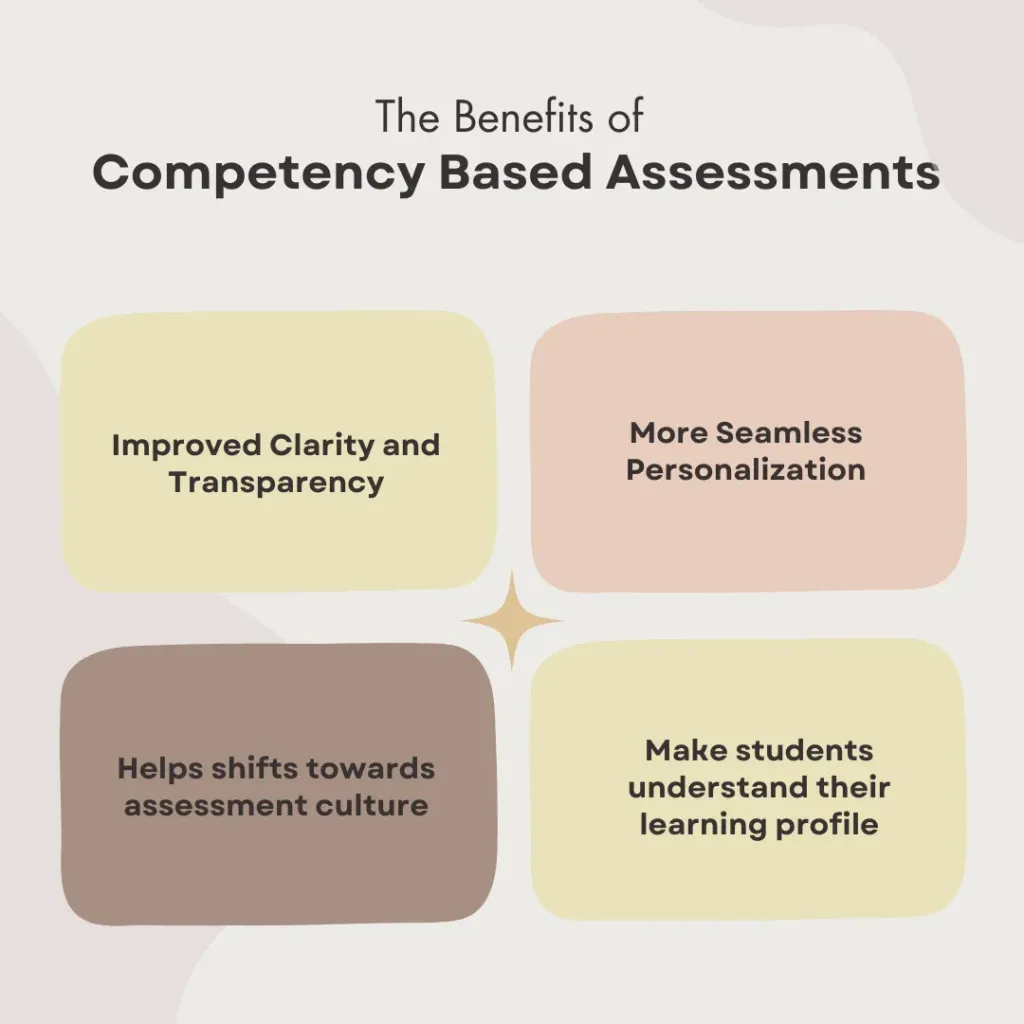
Assessment plays a crucial role in the educational process as it provides valuable feedback on students’ progress and understanding of concepts. It helps educators identify areas of strength and weakness, tailor instruction to meet individual needs, and measure learning outcomes. Additionally, assessments help students gauge their own learning and take ownership of their academic growth. Overall, effective assessment practices contribute to improved teaching and learning outcomes in schools.
Competency-based assessment in school education shifts the focus from traditional grading methods, which often rely on letter grades or percentages, to evaluating students based on their mastery of specific skills and knowledge areas, or competencies. Instead of simply measuring how much content students have memorized, competency-based assessment aims to assess their ability to apply what they have learned in real-world contexts.
To implement competency-based assessment in day-to-day practices, schools can take several steps:
- Identify key competencies: Schools need to determine the essential skills and knowledge areas that students should master at each grade level or subject. These competencies should be aligned with educational standards and learning objectives.
- Design assessments: Develop assessments that measure students’ proficiency in each competency. These assessments may include performance tasks, projects, presentations, portfolios, or other authentic tasks that allow students to demonstrate their understanding and application of knowledge.
- Provide feedback: Offer timely and specific feedback to students based on their performance on competency-based assessments. Feedback should focus on areas of strength and areas for improvement, helping students understand their progress and how they can further develop their skills.
- Track progress: Continuously monitor students’ progress towards mastering each competency over time. Use data from assessments to identify trends, patterns, and areas where additional support may be needed.

AI tools such as Smartail’s DeepGrade or other grading applications can play a crucial role in streamlining competency-based assessment practices and identifying learning gaps. These tools can:
- Automate grading: AI-powered grading tools can efficiently assess student work, providing immediate feedback to students and reducing the burden on teachers. This allows educators to focus more on instruction and personalized support for students.
- Provide insights: AI tools can analyze assessment data to identify trends and patterns in student performance. They can pinpoint specific areas where students are struggling or excelling, enabling educators to tailor instruction and interventions accordingly.
- Support differentiation: AI tools can help educators differentiate instruction by providing insights into each student’s individual strengths, weaknesses, and learning preferences. This allows teachers to provide targeted support and enrichment opportunities to meet the diverse needs of students.
Overall, AI tools such as DeepGrade can enhance competency-based assessment practices in schools by streamlining grading processes, providing valuable insights, and facilitating personalized learning experiences for students.




